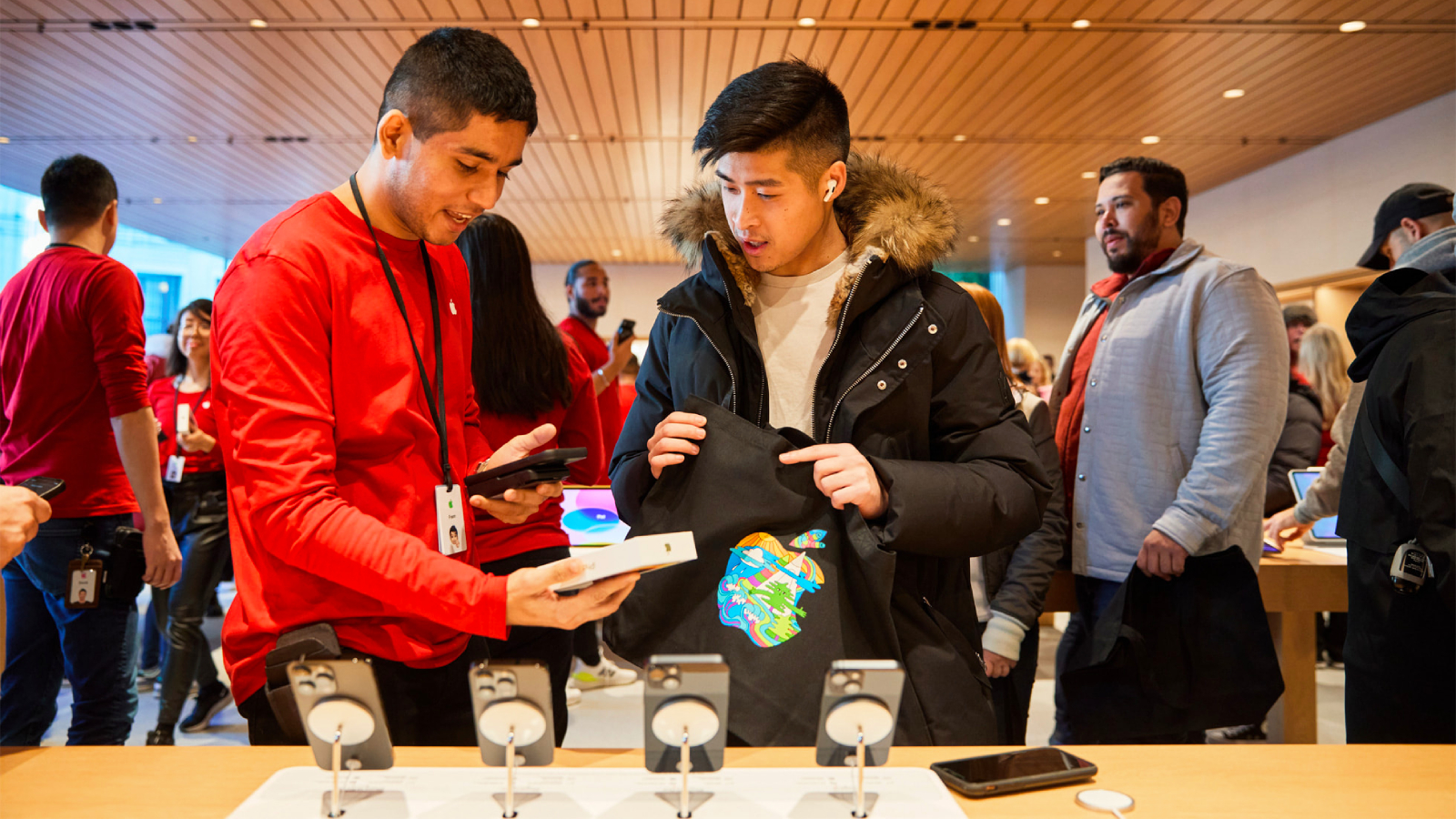![]()
Apple is set to roll out a new system that allows retail store staff to wirelessly update the software on iPhones prior to sale, without having to take them out of their packaging.
Writing in the latest edition of his
Power On newsletter,
Bloomberg's Mark Gurman said the new proprietary system, called "Presto," relies on MagSafe and other wireless technologies, and "looks a bit like a metal cubby for shoes." It will begin rolling out widely across the U.S. in April, with Apple's intention to have the technology in all U.S. retail stores by early summer, he added.
Gurman first reported on the wireless system in
October, describing it as a "proprietary pad-like device" on which retail store staff can place a sealed iPhone box. The system wirelessly turns on the iPhone inside, updates its software to the latest version available, and then powers it off.
Apple developed "Presto" as a way to avoid selling iPhones in retail stores with outdated software. For example, the iPhone 15 series shipped with iOS 17, but Apple subsequently released iOS 17.0.1 before the devices launched. The point update was required to fix an issue that prevented the transfer of data directly from another iPhone during the initial setup process.
That meant new iPhone 15 owners had to
update the devices themselves as part of the setup process, or manually via the Settings app under General → Software Update if they opted to set up the device as new and transfer data later. Following the rollout of "Presto," such a scenario will be avoidable, making the setup process more straightforward for end users.
Article Link:
Apple Readying In-Box iPhone Software Update System for Retail Stores



